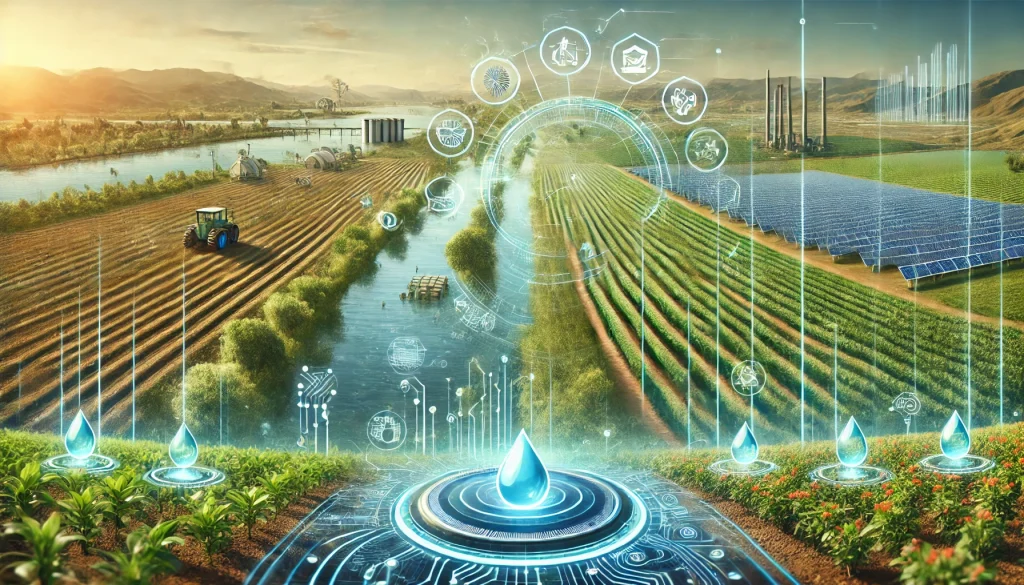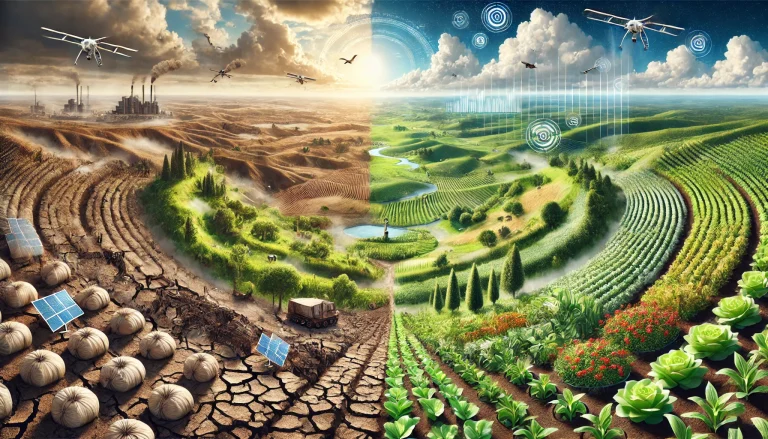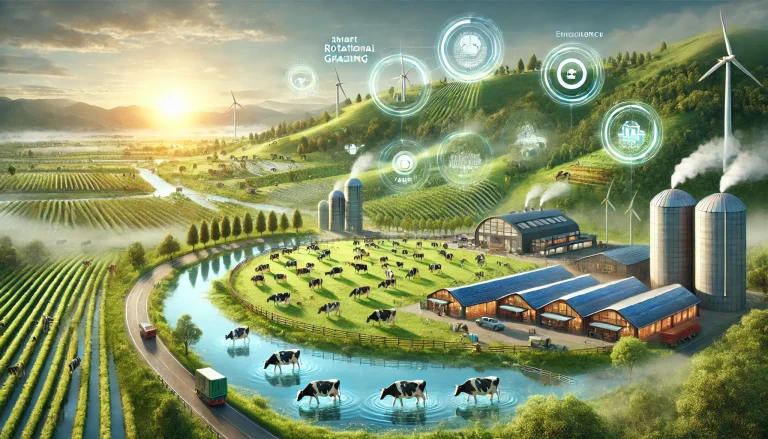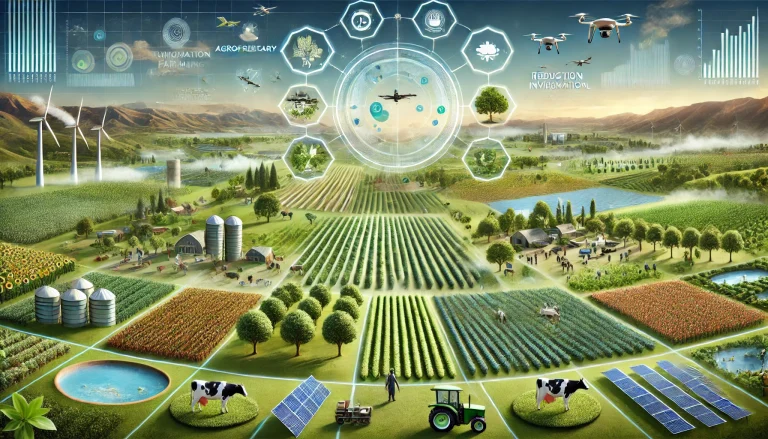Problem Statement:
Water scarcity is rapidly becoming one of the most critical challenges facing the global farming industry. Agriculture is the largest consumer of freshwater, accounting for approximately 70% of global water use. In many regions, particularly arid and semi-arid areas, irrigation is essential for maintaining crop yields and ensuring food security. However, the depletion of water resources due to over-extraction, inefficient water use, and climate change is putting immense pressure on the agricultural sector. Climate change is altering precipitation patterns, leading to unpredictable water availability and increasing the frequency and severity of droughts. These changes make it more difficult for farmers to access the water they need, particularly during critical growing seasons. Additionally, the overuse of water for irrigation has led to the degradation of vital water sources, including rivers, lakes, and aquifers, further exacerbating the problem. As water becomes scarcer, the competition between agricultural, industrial, and domestic uses intensifies, creating a complex challenge that requires urgent attention. Without sustainable water management practices, the future of food production is at risk, with potential consequences for global food security and the livelihoods of millions of farmers. Addressing water scarcity in agriculture is crucial to building a resilient farming system that can withstand the impacts of climate change and ensure the availability of food for a growing global population.
Pain Points:
- Depletion of Water Resources: Over-extraction of water for irrigation reduces the availability of freshwater in rivers, lakes, and aquifers.
- Inefficient Irrigation Practices: Traditional irrigation methods waste significant amounts of water, exacerbating scarcity.
- Climate Change Impacts: Altered precipitation patterns and increased droughts make water availability more unpredictable.
- High Costs of Water: As water becomes scarcer, the cost of accessing it increases, straining farmers’ finances.
- Salinization of Soils: Poor irrigation practices lead to the buildup of salts in the soil, reducing its fertility.
- Conflict Over Water Use: Competition between agricultural, industrial, and domestic users for limited water resources creates tensions.
- Environmental Degradation: Overuse of water for agriculture contributes to the drying up of wetlands and the loss of biodiversity.
- Limited Access to Technology: Many farmers lack access to advanced irrigation technologies that could improve water efficiency.
- Regulatory Challenges: Complex and inconsistent water management regulations make it difficult for farmers to plan and manage water use effectively.
- Crop Yield Reduction: Water scarcity directly impacts crop yields, threatening food security and farmer livelihoods.
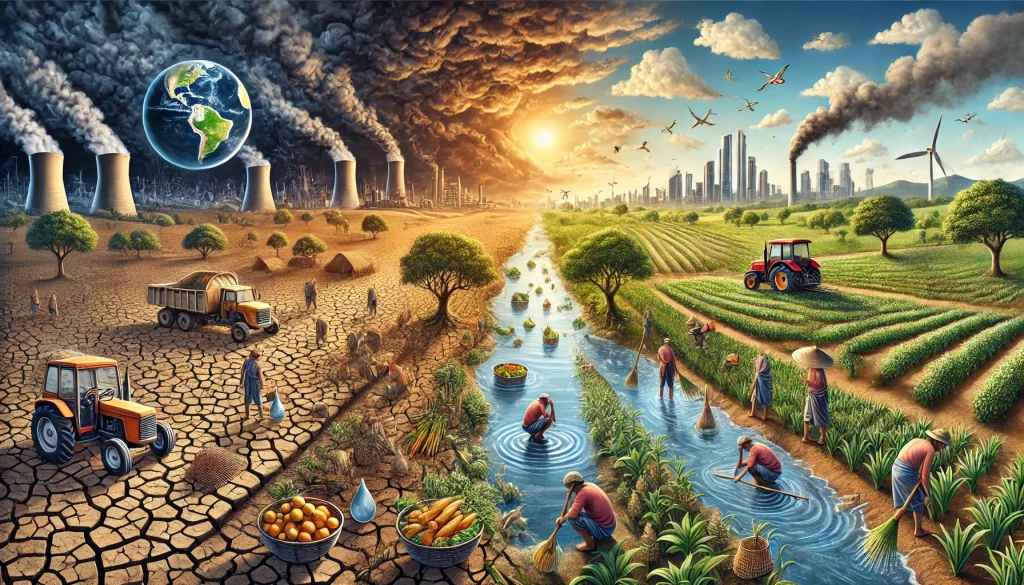
Future Vision:
In the future, the agricultural sector will adapt to the challenges of water scarcity through the widespread adoption of sustainable water management practices and advanced technologies. Precision irrigation systems, such as drip and micro-spray irrigation, will become the norm, allowing farmers to deliver water directly to the roots of plants with minimal waste. These systems will be coupled with soil moisture sensors and real-time data analytics, enabling farmers to monitor water levels and adjust irrigation schedules based on the specific needs of their crops. The integration of renewable energy sources, such as solar-powered irrigation pumps, will reduce the reliance on fossil fuels and lower the carbon footprint of water management in agriculture. Rainwater harvesting and water recycling systems will be implemented to capture and reuse water, further reducing the demand on freshwater resources. Additionally, the adoption of drought-resistant crop varieties and agroecological practices, such as cover cropping and mulching, will help improve water retention in soils and reduce the need for irrigation. Governments and international organizations will play a key role in supporting these efforts by providing financial incentives, technical assistance, and infrastructure investments to help farmers transition to more sustainable practices. Through these collective efforts, agriculture will become more resilient to water scarcity, ensuring that food production can continue even in the face of climate change and growing global demand.
Use Cases:
- Precision Drip Irrigation: Farmers use drip irrigation systems to deliver water directly to the root zones of crops, minimizing waste and maximizing efficiency.
- Soil Moisture Monitoring: Sensors are deployed in fields to monitor soil moisture levels and inform irrigation decisions in real-time.
- Rainwater Harvesting: Farmers collect and store rainwater for use during dry periods, reducing reliance on external water sources.
- Solar-Powered Irrigation: Solar energy powers irrigation pumps, reducing energy costs and reliance on fossil fuels.
- Drought-Resistant Crop Varieties: Cultivating crops that are genetically adapted to withstand low water conditions.
- Water Recycling Systems: Systems that treat and recycle water from agricultural operations for reuse in irrigation.
- Agroforestry: Integrating trees into agricultural landscapes to improve water retention and reduce evaporation.
- Mulching: Applying organic or inorganic materials to the soil surface to conserve moisture and reduce evaporation.
- Aquifer Recharge: Techniques to enhance the natural replenishment of groundwater supplies through managed aquifer recharge.
- Water Management Software: Digital platforms that provide farmers with data-driven insights on water use, weather patterns, and crop needs.
Target Users and Stakeholders:
Target Users:
- Farmers (small to large scale) in water-scarce regions.
- Agricultural cooperatives and associations focused on sustainable water use.
- Agribusinesses seeking to improve water efficiency and reduce operational costs.
Stakeholders:
- Government agencies regulating water use and supporting sustainable agriculture.
- NGOs working on water conservation, climate adaptation, and food security.
- Environmental organizations focused on protecting water resources and biodiversity.
- Technology companies developing water management solutions for agriculture.
- Consumers concerned about water use in food production and sustainability.
Key Competition:
- Netafim: A global leader in precision irrigation solutions, offering a range of products and technologies to optimize water use in agriculture.
- Valmont Industries: Provides advanced irrigation systems, including center pivots and precision technology for efficient water management.
- Rain Bird: Specializes in irrigation products, including controllers, sensors, and water-saving technologies for agriculture.
- Jain Irrigation Systems: Focuses on sustainable agriculture with a range of irrigation, water conservation, and agronomic solutions.
- Groasis: Develops water-saving technologies like the Waterboxx, which supports plant growth in arid regions with minimal water.
Products/Services:
- Precision Irrigation Systems: Drip, micro-spray, and center pivot irrigation technologies designed to optimize water use.
- Water Management Software: Digital tools that provide real-time insights on water use, weather, and crop needs.
- Soil Moisture Sensors: Devices that monitor soil moisture levels and inform irrigation decisions.
- Solar-Powered Irrigation Pumps: Renewable energy solutions for powering irrigation systems in off-grid areas.
- Rainwater Harvesting Systems: Infrastructure for collecting and storing rainwater for agricultural use.
- Water Recycling Technologies: Systems for treating and reusing water in agricultural operations.
- Drought-Resistant Seeds: Crop varieties genetically adapted to perform well under low water conditions.
- Agroecological Practices: Consulting and implementation services for water-efficient farming methods like agroforestry and mulching.
Active Startups:
- Aquaspy: Develops soil moisture monitoring technologies that help farmers optimize irrigation and conserve water.
- Hydrosat: Uses satellite data to provide insights on soil moisture and water stress, helping farmers make informed decisions.
- Rivulis: Specializes in micro-irrigation solutions, offering products that enhance water efficiency and crop productivity.
- CropX: Provides an agritech platform that integrates soil data, crop models, and weather data to optimize water use.
- Saturas: Develops sensors embedded in tree trunks that measure water stress, helping farmers optimize irrigation for orchards.
Ongoing Work in Related Areas:
- Research on desalination technologies to provide freshwater for irrigation in coastal and arid regions.
- Development of smart irrigation systems that automatically adjust water delivery based on real-time soil and weather data.
- Drought-tolerant crop breeding to develop new varieties that require less water and can thrive in arid conditions.
- Integrated water management strategies that combine rainwater harvesting, aquifer recharge, and efficient irrigation.
- Water conservation programs and policies aimed at reducing water use in agriculture and improving water efficiency.
Recent Investment:
- $200 million investment in Netafim in 2023 to expand their precision irrigation technologies globally.
- $100 million raised by CropX in 2022 to enhance their agritech platform and integrate more water management features.
- $75 million in funding for Rivulis in 2023 to scale their micro-irrigation solutions and reach more farmers in water-scarce regions.
- $50 million in venture capital for Saturas in 2024 to develop and deploy their water stress monitoring sensors in orchards worldwide.
- $35 million invested in Hydrosat in 2023 to advance their satellite data services for water management in agriculture.
Market Maturity:
The market for water management solutions in agriculture is rapidly approaching maturity as water scarcity becomes a pressing global concern. With the impacts of climate change, such as altered precipitation patterns and increased frequency of droughts, becoming more apparent, there is an urgent need for technologies and practices that enhance water efficiency and sustainability in food production. Precision irrigation systems, water monitoring technologies, and water conservation practices are gaining widespread adoption among both large agribusinesses and smallholder farmers. These innovations help optimize water use, reduce waste, and maintain crop yields even in water-scarce environments.
Governments and international organizations are increasingly prioritizing water conservation in agriculture, providing grants, subsidies, and technical assistance to encourage the adoption of sustainable practices. In addition, there is a growing awareness among consumers and businesses about the importance of sustainable water use, which is driving demand for products that promote water efficiency. Despite these advances, challenges remain, particularly in regions with severely limited water resources and in developing countries where access to modern technologies is constrained by economic and infrastructural barriers. Addressing these challenges requires continued investment, policy support, and innovation to ensure that water management solutions are accessible, affordable, and effective across diverse agricultural contexts.
Summary:
Water scarcity is a critical challenge for the global farming industry, particularly in arid regions where irrigation is essential for crop production. Agriculture, which accounts for 70% of global freshwater use, faces significant threats from the depletion of water resources, exacerbated by climate change. The increasing frequency of droughts and unpredictable precipitation patterns make it difficult for farmers to access the water they need, leading to reduced crop yields and heightened competition for limited resources. Addressing water scarcity in agriculture is essential for ensuring food security, sustaining farmer livelihoods, and protecting the environment.
The future of farming will depend on the adoption of sustainable water management practices and advanced technologies. Precision irrigation, soil moisture monitoring, rainwater harvesting, and solar-powered irrigation systems offer promising solutions to enhance water efficiency and reduce waste. By integrating these technologies with agroecological practices, such as the use of drought-resistant crops and water recycling systems, the agricultural sector can become more resilient to water scarcity and climate change.
The market for water management solutions is maturing, driven by growing demand for sustainable practices and increasing investments in innovation. Governments, international organizations, and private sector stakeholders are playing crucial roles in supporting the transition to water-efficient agriculture. However, challenges remain, particularly in making these technologies accessible to smallholder farmers and regions with limited resources. Continued efforts are needed to ensure that water management solutions are widely adopted, affordable, and capable of meeting the challenges posed by water scarcity in agriculture. Through these efforts, we can build a more resilient and sustainable agricultural system that can provide food security for future generations.
